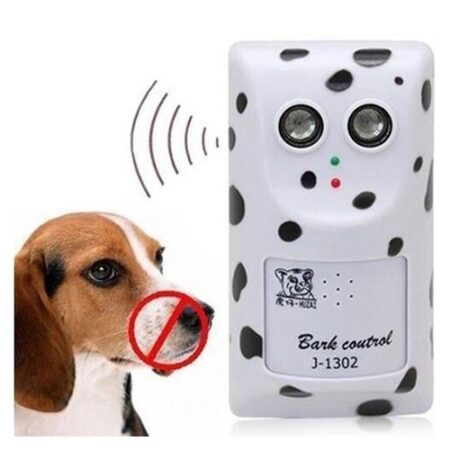Puppies are often cute and playful, but they can also be a bundle of energy and noise. Barking is a natural behavior for puppies, but it can become a problem if it becomes excessive or disruptive.
Barking can also be a sign of underlying issues such as anxiety, boredom, or attention-seeking. It is important to train your puppy not to bark excessively to ensure the well-being of both your puppy and your household.
How to Stop a Puppy From Barking: The Ultimate Guide
Here are some techniques and tips to help you control and stop your puppy from barking.
Identify the reason behind the barking:
The first step in training your puppy to stop barking is to determine the cause of their barking. Is your puppy barking because they are bored, anxious, or seeking attention? Understanding the root cause of their barking will help you address the issue more effectively.
Socialization and Training:
Socialization and training are essential for puppies to learn how to behave and communicate effectively. By exposing your puppy to different environments, people, and other animals, they will become more confident and less likely to bark unnecessarily. Training your puppy with basic commands such as “speak” and “quiet” can also teach them when it is appropriate to bark and when to stop.
Positive Reinforcement:
Positive reinforcement is a training technique that involves rewarding your puppy for good behavior. When your puppy stops barking, reward them with a treat or praise. This will reinforce good behavior and encourage your puppy to repeat it in the future.
Provide Adequate Exercise and Mental Stimulation:
Puppies have a lot of energy and need regular exercise and mental stimulation to keep them engaged and fulfilled. A tired puppy is less likely to bark out of boredom or excess energy. Spend time playing with your puppy, taking them on walks, or teaching them new tricks to keep them physically and mentally stimulated.
Create a Quiet and Safe Space:
If your puppy is barking due to feeling anxious or afraid, creating a comfortable and safe space for them can help calm their nerves. This can be a crate, a designated corner, or a bed in a quiet room. Make sure to also provide your puppy with toys and treats to keep them occupied.
Correct the Behavior:
If your puppy continues to bark excessively after trying the above techniques, it may be necessary to correct their behavior. When your puppy starts barking, calmly say “quiet” or use any other command you have trained them with. If they do not stop, use a distraction technique such as clapping or shaking a toy. Once they stop barking, immediately praise and reward them.
Seek Professional Help:
If your puppy’s excessive barking persists and none of the above techniques seem to work, it may be beneficial to seek the help of a professional dog trainer. They can assess your puppy’s behavior and tailor a training plan to address the specific issue.
How to Get a Dog to Stop Barking at a Person
There are several things you can do to get your dog to stop barking at a person. First, try to identify the trigger that is causing your dog to bark. Is it a specific person, or a certain type of person? Once you know the trigger, you can work on desensitizing your dog to it.
Start by introducing your dog to the trigger at a distance, and gradually bring it closer over time. Use positive reinforcement, like treats and praise, to reward your dog for calm behavior around the trigger. You may also want to try using a no-bark collar or other training tool to help reinforce the desired behavior.
How to Stop My Dog from Barking When I Leave
If your dog is barking when you leave, it’s likely due to separation anxiety. Dogs with separation anxiety may bark because they are stressed or upset about being left alone. To stop your dog from barking when you leave, you’ll need to address the underlying cause of the behavior.
Start by practicing separation exercises with your dog, gradually increasing the amount of time you’re away from them. You can also try to create a positive association with your departure by giving your dog a treat before you leave. In addition, make sure your dog is getting plenty of exercise and mental stimulation to keep them busy while you’re gone.
How to Stop Puppy Barking for Attention
When your puppy barks for attention, it’s important to ignore the behavior. By giving your puppy attention when they bark, you’re rewarding the behavior and reinforcing it. Instead, try to give your puppy attention when they’re quiet. You can do this by praising them, giving them a treat, or playing with them.
It’s also important to make sure your puppy is getting enough exercise and mental stimulation. A tired puppy is less likely to bark for attention.
SEE ALSO: How to Use Liquid Gold for Dogs: The Ultimate Guide
How to Stop Dog Barking at Night
If your dog is barking at night, the first step is to figure out what’s causing the behavior. Once you know the cause, you can work on training your dog to stop barking. If your dog is barking because they’re bored or lonely, try increasing their exercise and providing them with more mental stimulation during the day.
You can also try to tire them out before bedtime with a long walk or play session. If your dog is barking because they’re anxious or afraid, you’ll need to address the root cause of the anxiety. This may involve consulting with a veterinarian or a behaviorist.
Anti Barking Device
- Ultrasonic Bark Control Devices: These devices emit a high-pitched sound that is inaudible to humans but can be heard by dogs, which helps to interrupt their barking behavior.
- Citronella Collars: These collars spray a burst of citronella, which is a naturally scented oil that is aversive to dogs, whenever they bark.
- Static or Shock Collars: These collars deliver a small electric shock to the dog when they bark, which serves as a punishment for the behavior.
- Vibration Collars: These collars produce a vibration that can be felt by the dog when they bark, which serves as a distraction and interrupts their barking.
- Remote Control Bark Detectors: These devices allow owners to trigger a sound or vibration from a handheld remote when their dog barks, helping to discourage barking in certain situations.
- Automatic Water Sprayers: These devices are motion-activated and spray a stream of water whenever the dog barks, which can startle them and discourage the behavior.
- Electronic Training Mat: These mats emit a harmless static pulse when activated by a dog’s bark, making it uncomfortable for them to stand on and discourage barking.
- Dog Silencer Devices: These devices emit a high-frequency sound that is inaudible to humans but can be heard by dogs, which helps to interrupt their barking behavior.
- Pet Corrector Spray: These sprays emit a loud hissing sound that mimics a warning from another animal, which can interrupt a dog’s barking.
- Anti-Barking App: These smartphone apps emit a high-frequency sound or vibration to interrupt a dog’s barking, and some also allow owners to record their own voice to be played when their dog barks.
Top 10 Barking Dogs
- Beagle
- Dalmatian
- Chihuahua
- Jack Russell Terrier
- Shih Tzu
- Bulldog
- Pomeranian
- Cocker Spaniel
- Siberian Husky
- Australian Cattle Dog
Do Dog Barking Collars Work?
Yes, dog barking collars can be effective in some cases. However, it’s important to choose the right type of collar for your dog and to use it correctly.
Will Dog Whistles Stop My Dog From Barking?
A dog whistle may be effective in stopping your dog from barking, but it’s not a guaranteed solution. Dog whistles emit a high-pitched sound that is inaudible to humans, but can be heard by dogs.
Will Muzzles Stop My Dog From Barking?
While muzzles can prevent your dog from barking, they should not be used as a long-term solution. A muzzle can be an effective tool for stopping your dog from barking in the short term, but it does not address the underlying cause of the behavior.
What is the Most Effective Way to Stop Dog Barking?
The most effective way to stop your dog from barking is through positive reinforcement training. This type of training uses rewards, such as treats or praise, to encourage your dog to exhibit the desired behavior.
When is it OK for Dogs to Bark?
It’s perfectly normal and even healthy for dogs to bark in certain situations. Barking is a form of communication, and it’s your dog’s way of expressing themselves. For example, it’s completely appropriate for your dog to bark when they hear a strange noise or when someone comes to the door. It’s also fine for your dog to bark during play or when they’re excited.
Why Do Dogs Bark?
- To communicate: Barking is a form of communication for dogs. They use it to convey different messages and emotions such as excitement, fear, warning, or frustration. Different barks may also have different meanings, such as a high-pitched bark for playfulness and a low, aggressive bark for danger.
- As an alert: Dogs have a keen sense of hearing and will bark to alert their owners of potential threats or changes in their surroundings. This is why they make good watchdogs and can be trained to bark on command.
- Seeking attention: Dogs may bark to seek attention from their owners. This could be for various reasons, such as wanting to play, asking for food or water, or simply wanting to be noticed and petted.
- Out of boredom: Dogs are social animals and require mental and physical stimulation. When they are bored, they may bark out of frustration. This is especially common in dogs that are left alone for long periods.
- Separation anxiety: Dogs may also bark excessively when they are suffering from separation anxiety. This is a common behavioral issue in dogs and can be triggered when they are left alone or separated from their owners.
- Responding to other dogs: Dogs are known for their pack mentality, and they may bark in response to other dogs barking in the neighborhood. This could be out of excitement, warning, or simply joining in on the conversation.
- Medical reasons: In some cases, excessive barking may be a sign of underlying medical issues. Pain, discomfort, or cognitive decline can cause a dog to bark more than usual. If your dog’s barking suddenly increases without any apparent reason, it is best to consult a veterinarian.
- Breed traits: Certain breeds are known for being more vocal than others. For example, breeds such as Beagles, Dachshunds, and Hounds were bred for their barking ability, making them more prone to barking.
- Lack of training: Dogs that have not been properly trained or socialized may bark excessively as they do not know how to behave appropriately in different situations. This can also lead to fear-based barking.
- Environmental factors: Loud noises, such as thunder or fireworks, can cause dogs to bark out of fear or discomfort. Changes in their environment, such as moving to a new home, can also trigger excessive barking as they try to adjust to their new surroundings.
How to Make a Dog Stop Barking Home Remedies
There are a few home remedies you can try to stop your dog from barking.
- One option is to use a white noise machine to mask the sounds that trigger your dog’s barking.
- You can also try providing your dog with more exercise and mental stimulation throughout the day. If your dog is barking out of boredom or excess energy, this may help to curb the behavior.
- You can also try training your dog with the “quiet” command, which involves teaching them to be quiet on command.
- Finally, some people have had success using calming scents, such as lavender, to help their dogs relax and stop barking.
SEE ALSO: How to Make a Dog’s Testicle Drop: Simple Steps
FAQs
Q. How do I get my puppy to stop barking at everything?
A. First, it’s important to understand why your puppy is barking. Is it out of fear, excitement, or boredom? Once you’ve identified the cause, you can begin training your puppy to stop barking. One method is called “capturing calmness.” This involves rewarding your puppy for being calm and quiet.
Q. How do I get my puppy to stop barking at commands?
A. When training your puppy to stop barking at commands, it’s important to use positive reinforcement. Start by saying the command and then wait for your puppy to be quiet. When they are quiet, reward them with a treat or praise.
Q. How do you discipline a puppy for barking?
A. The best way to discipline a puppy for barking is through positive reinforcement. Rather than yelling or using harsh methods, use positive reinforcement to teach your puppy what you want them to do instead of barking.
Q. How do you stop a dog barking to get what he wants?
A. The first step to stopping a dog from barking to get what he wants is to identify the underlying cause. Is the dog bored, anxious, or simply looking for attention? Once you’ve identified the cause, you can begin to work on addressing it. For example, if the dog is bored, you can try giving him more exercise or mental stimulation. If the dog is anxious, you can try providing him with a safe place to relax, such as a crate or a quiet room.
Conclusion
In conclusion, remember, that training your puppy not to bark excessively takes time, patience, and consistency. Be sure to stay calm and avoid punishing or yelling at your puppy, as this can cause fear and anxiety, leading to more barking. With the right training and techniques, you can help your puppy learn to communicate effectively and be a well-behaved member of your household.


